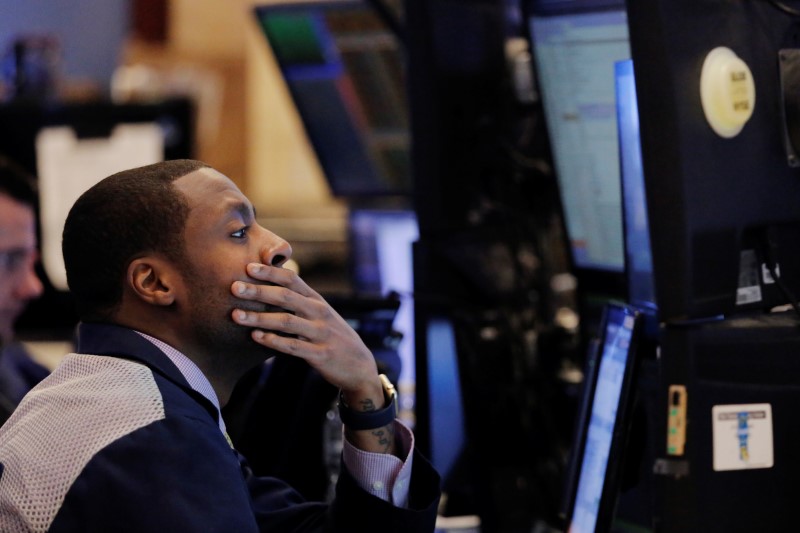Investing.com - Stocks fell back Friday as Wall Street worried that U.S.-China trade talks had hit a snag.
The pullback pushed the major indexes into a small weekly loss, the first after three weeks of gains.
The S&P 500 was off 0.5% and ended below 3,000, a level that may be emerging as a pivot point for the market going forward.
The Dow Jones Industrial Average was off 0.6%, or nearly 160 points and close to its low on the day. The Nasdaq Composite dropped 0.8%, and the Nasdaq 100 index was off nearly 1%.
Amazon.com (NASDAQ:AMZN), Apple (NASDAQ:AAPL), Microsoft (NASDAQ:MSFT) and Netflix (NASDAQ:NFLX) combined to contribute 42 points to the Nasdaq 100's decline.
In addition, the market was seeing volatility from a quadruple witching hour: a rare simultaneous settlement of futures and options of single stocks and stock indexes.
The trade jitters were the big reason for the market's fall and started on a reports that a Chinese agricultural delegation decided not to visit farms in Nebraska and Montana and, instead, headed home. The worry was that cancellations were a signal the trade talks between the U.S. and China weren't going well.
President Donald Trump said during the day that it would take more than agriculture purchases to settle the trade dispute, but there was no official explanation for the departures.
The jitters hit tech stocks hard.
Chip stocks were also lower, including Xilinx (NASDAQ:XLNX), Nvidia (NASDAQ:NVDA), Broadcom (NASDAQ:AVGO) and Qualcomm (NASDAQ:QCOM). Intel (NASDAQ:INTC) was the weakest of the Dow stocks.
In addition, shares of streaming company Roku (NASDAQ:ROKU) fell 19% after an analyst issued a sell rating and price target of $60 on the stock.
Health care stocks were higher after Senate Majority Leader Mitch McConnell pronounced a drug-pricing proposal from House Speaker Nancy Pelosi dead on arrival.
Merck (NYSE:MRK) was the top Dow stock on the day. Johnson & Johnson (NYSE:JNJ) was third.
Interest rates moved lower even as two Federal Reserve officials argued over whether interest rates should be cut more. Boston Fed President Eric Rosengren is worried about inflating hard assets like real estate. James Bullard of the St. Louis Fed is more worried about economic slowdown. The 10-Year Treasury yield fell to 1.722% from Thursday's 1.774%.
Crude oil had been higher for much of the day, but fell back at the close, although it ended the week up more than 6%. Gold futures and the dollar moved higher.
